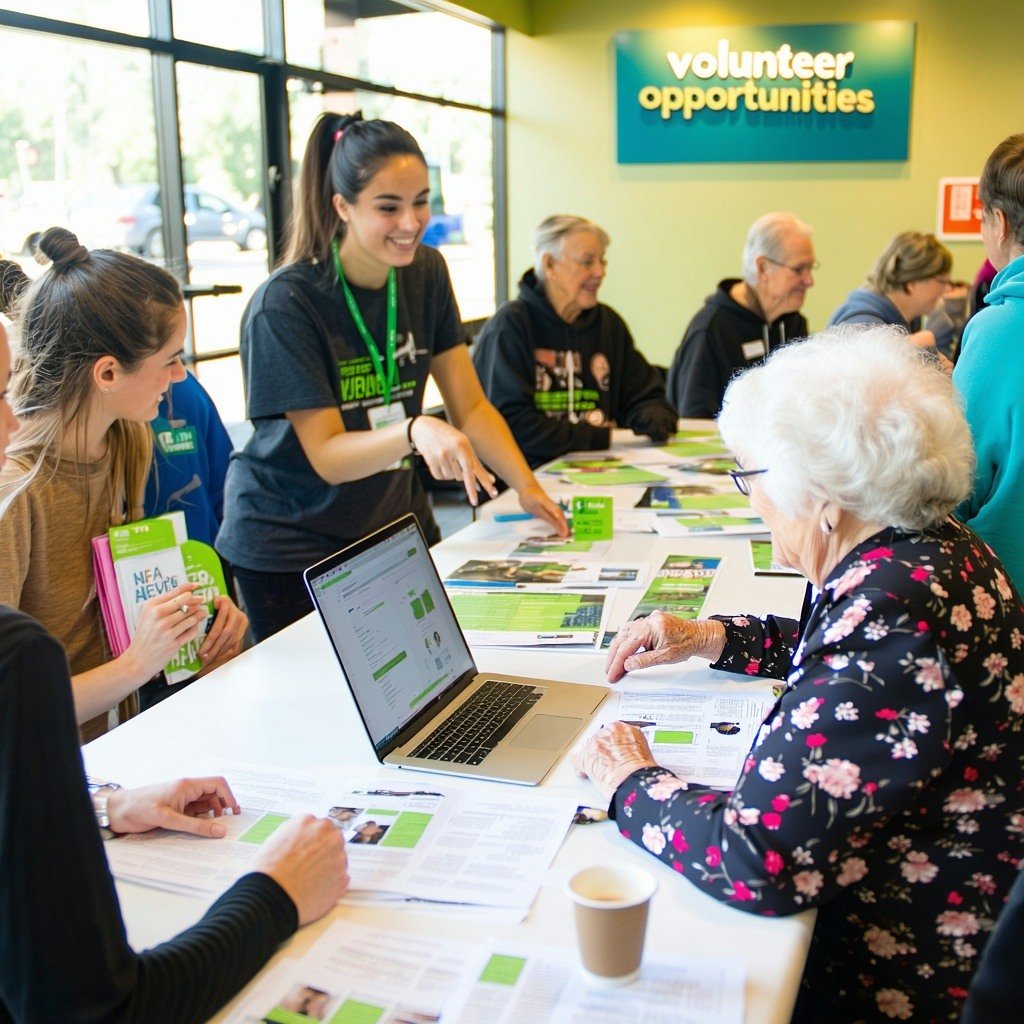Enhancing Volunteer Recruitment Efficiency with Volunteer Impact
Recruiting volunteers is a challenging yet essential task for any volunteer-involving organization. As a volunteer manager, you understand the...
2 min read
Nicole Bosh, Membership Manager, Volunteer Lethbridge May 14, 2025 9:00:00 AM

In a world where technology is intertwined into almost every aspect of our lives, volunteering is no exception. Technology has drastically changed our sector throughout the years to help Volunteer Managers keep in touch with what is at the core of everything we do: assists volunteers. Amidst this digital revolution, it’s worth asking: How do we ensure that the heart of volunteering—the empathy and human connection—remains at the forefront?
During the COVID pandemic, Volunteer Lethbridge (VL) managed a Keep In Touch (KIT) program, where we recruited volunteers and matched them with community members who were socially disconnected and needed a person to talk to on a regular basis. At the end of the project, VL saw an opportunity to expand and strengthen the volunteer recruitment and screening component, in order to create a “pool” of pre-screened and ready-to-activate community volunteers that volunteer managers could access.
Volunteer Lethbridge introduced the Community Volunteer Management Model (CVMM) in 2021 that significantly enhances the success of volunteer recruitment and placement.
While technology offers incredible opportunities, it’s important to recognize the essential need for human connection as an option to meet volunteer and Volunteer Managers’ needs.
With the Community Volunteer Management Model, our Volunteer Coordinator engages with volunteers at various stages of the screening process as well as after their volunteer placement.
VL currently markets volunteer opportunities through our website, Facebook, Instagram, a volunteer column through both email and our daily newspaper. Some volunteer applicants, especially seniors, find it difficult to use the online application process. VL employees are available to help with technological challenges by offering in-person meetings.
Better Impact was designed as volunteer management software, allowing agencies to accept online volunteer applications, manage volunteer profiles, and track and report on volunteer hours. While younger generations typically embrace technology and are comfortable with the online application, others may prefer to meet in person and fill out paper documentation. These options provide a way to reach all potential volunteers.
The magic of volunteering lies in its ability to bring people together, to nurture understanding and compassion, and to build bridges across differences. Technology can amplify this magic but only if we execute it thoughtfully. By combining the efficiency of digital tools with the warmth of human connection, we can create a new era of volunteering that is both innovative and deeply personal.
The combination of tools to reach volunteers will be invaluable as our sector continues to navigate, lead, and grow. Together, let’s ensure that even in our increasingly digital world, the human touch remains at the heart of every act of kindness.
Featured Posts

Recruiting volunteers is a challenging yet essential task for any volunteer-involving organization. As a volunteer manager, you understand the...

Event-based volunteering has long been part of the volunteerism landscape. People are increasingly busy and, therefore, interested in volunteering on...